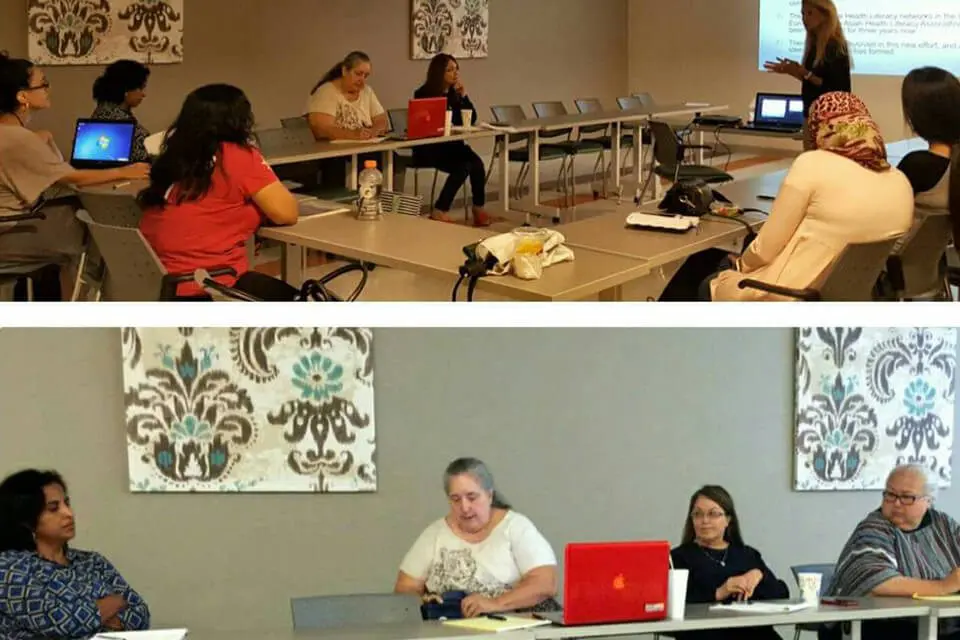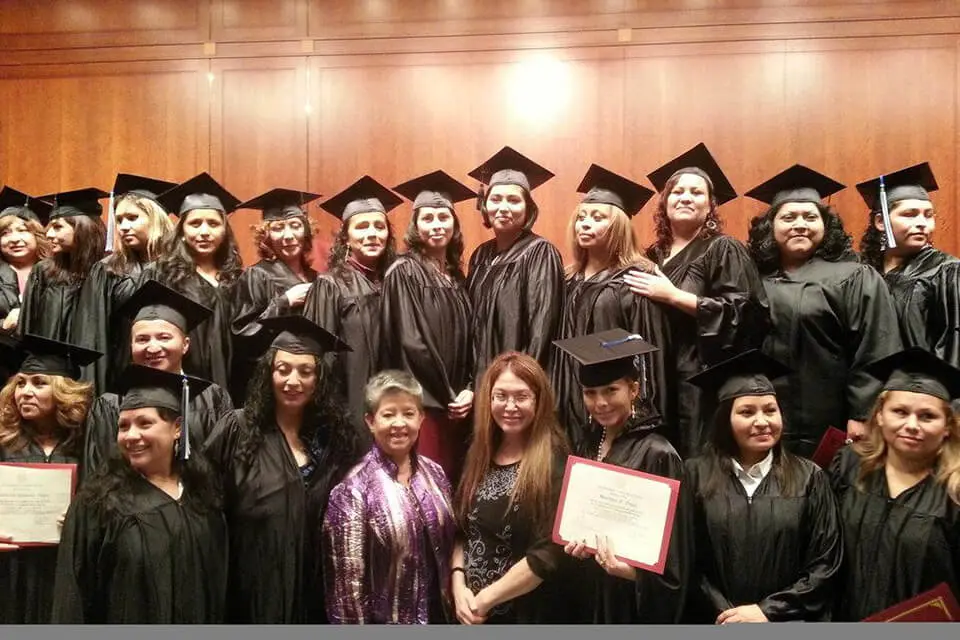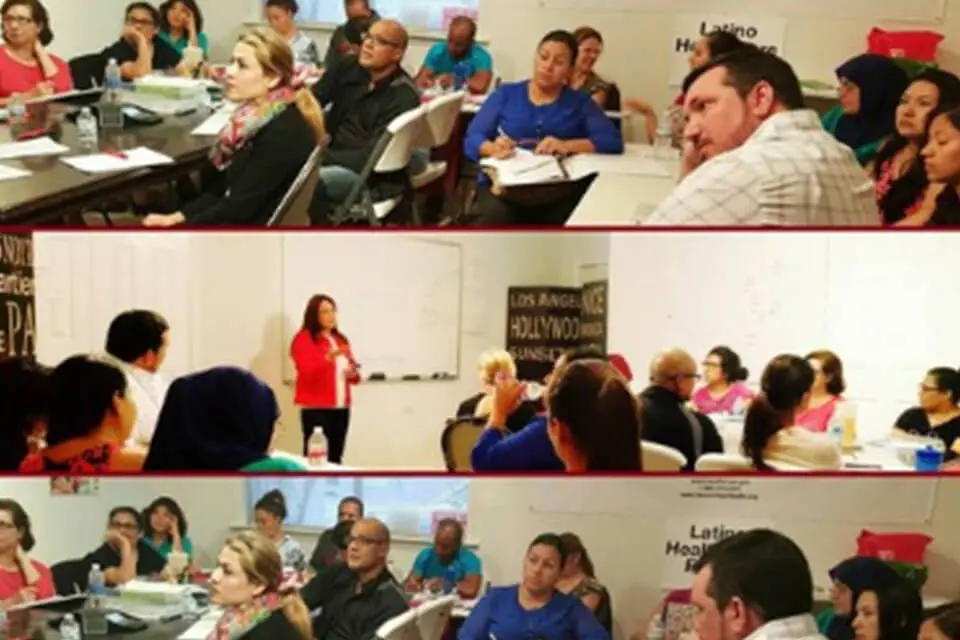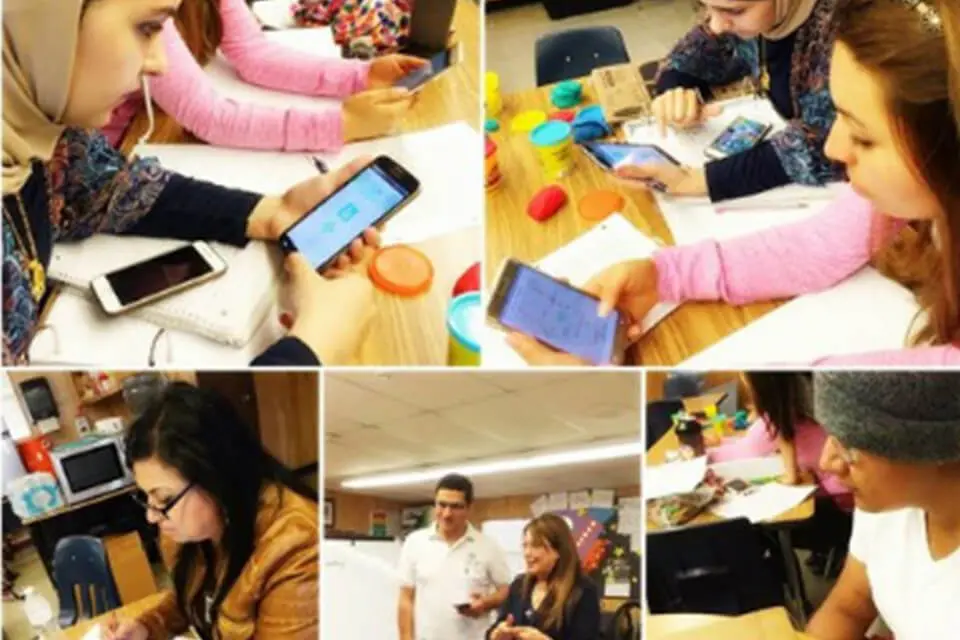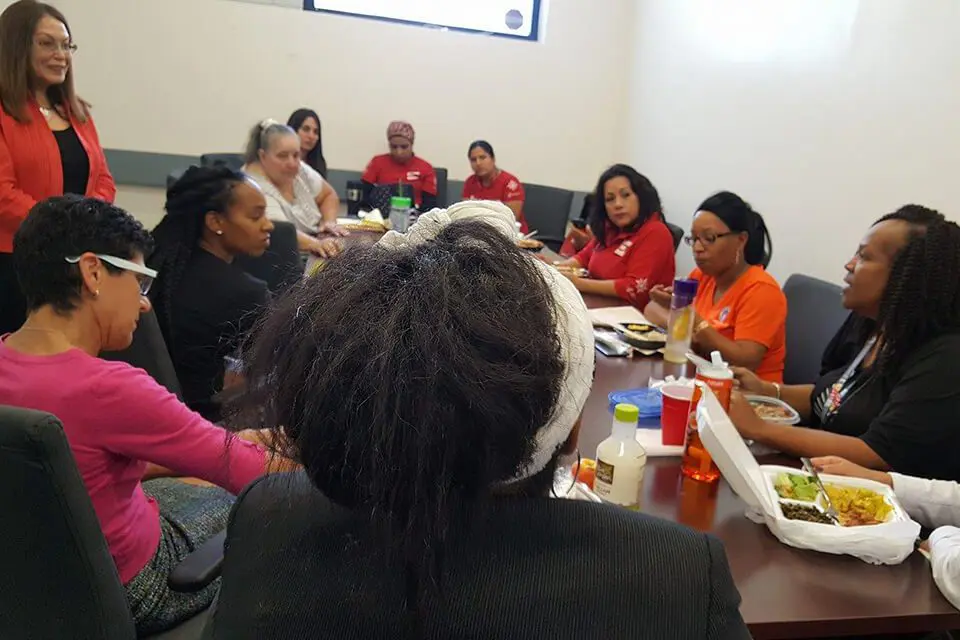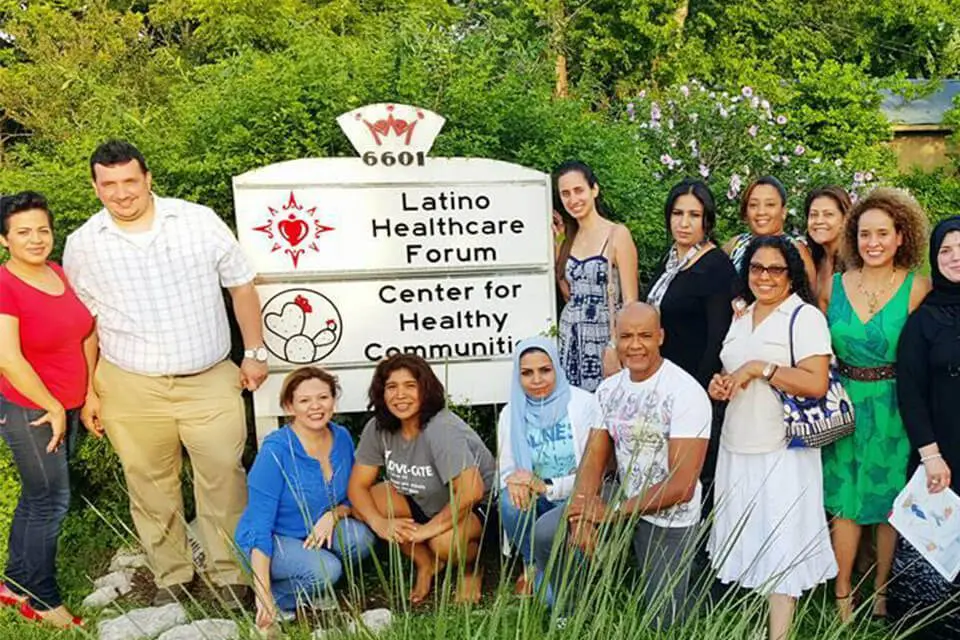PromoSalud Training Institute
The LHCF's core competency is its PromoSalud program, which trains members of the community to become community health workers or “promotores de salud” through a 251-hour course certified by the Texas Department of State Health Services.
The Promotores Model
Promotores are our answer to the nation's growing disparity between the racial and ethnic composition of the healthcare workforce and that of the U.S. population. Promotores are volunteer community members and paid frontline public health workers who are members of and/or have an unusually close understanding of a particular community, such as Hispanic/Latino communities. They generally share the ethnicity, language, socioeconomic status, and life experiences of the community members they serve. These social attributes enable promotores to serve as liaisons between health and social services and the community to facilitate access to and enrollment in healthcare and wellness services.
PromoSalud adheres to the World Health Organization's definition of Community HealthCare Forum: “Community health workers (CHWs) are health care providers who live in the community they serve and receive lower levels of formal education and training than professional health care workers such as nurses and doctors. This human resource group has enormous potential to extend health care services to vulnerable populations, such as communities living in remote areas and historically marginalized people, to meet unmet health needs in a culturally appropriate manner, improve access to services, address inequities in health status and improve health system performance and efficiency”.
Our Programs
What Promotores Do
Some of the many ways promotores serve the community:
Enhance patient communication Provide resources on preventative care Enforce adherence to treatment Follow up on treatmentRefer community members to providers Help with disease self-management Help individuals navigate the healthcare system
Additionally, promotores build individual and community capacity by increasing health knowledge and self-sufficiency through a range of activities such as outreach, community education, informal counseling, social support, and advocacy.
Our Gallery
Follow the link to see available courses:
PROMOTOR(A)/COMMUNITY HEALTH WORKER TRAINING AND CERTIFICATION PROGRAM

